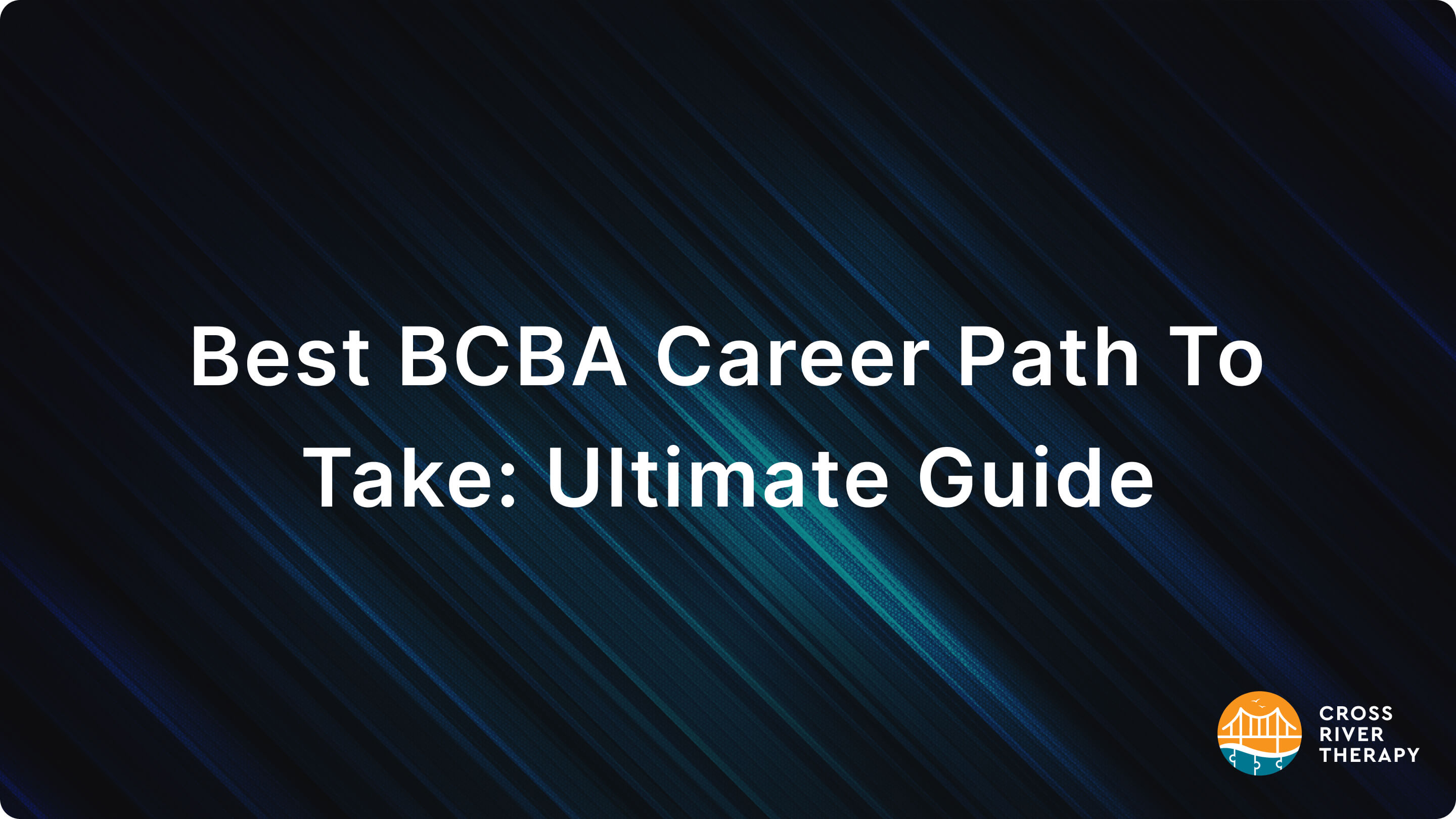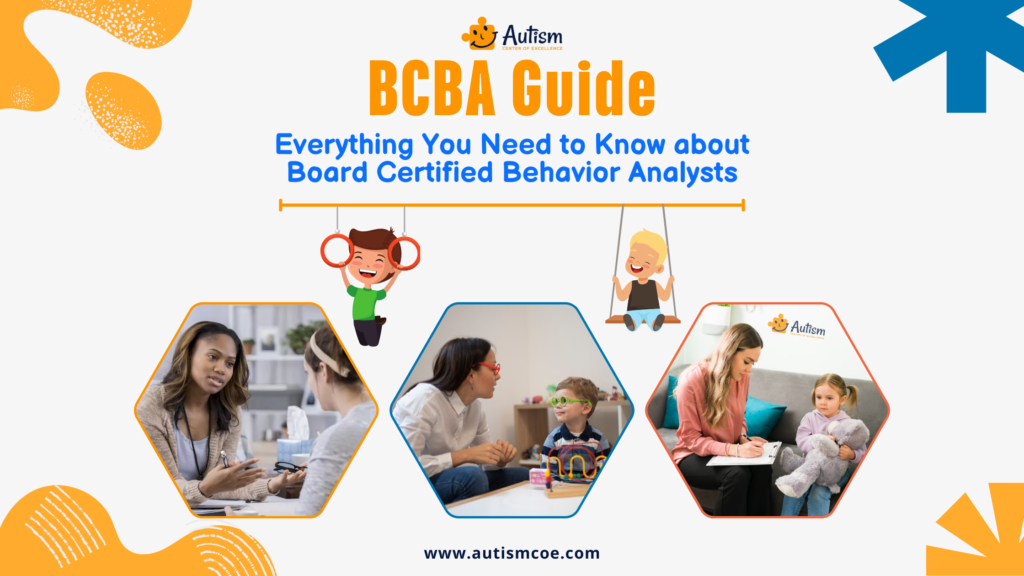BCBA Assistant Certification: Your Fast Track to a Rewarding Career in Applied Behavior Analysis
Are you passionate about helping others and making a real difference in the lives of individuals with developmental disabilities, autism spectrum disorder, or other behavioral challenges? The field of Applied Behavior Analysis (ABA) offers a fulfilling career path, and a great entry point is becoming a Board Certified Behavior Analyst (BCBA) Assistant. This guide will provide a comprehensive overview of BCBA Assistant certification, outlining the steps you need to take to kickstart your career and contribute to positive behavior change quickly.
This article will delve into the requirements, responsibilities, and benefits of becoming a BCBA Assistant, equipping you with the knowledge you need to navigate this exciting career opportunity. We’ll cover everything from eligibility criteria to exam preparation, helping you understand the path to success in this vital role.
What is a BCBA Assistant?
A BCBA Assistant, also known as a Registered Behavior Technician (RBT), works under the close supervision of a Board Certified Behavior Analyst (BCBA) or a Board Certified Assistant Behavior Analyst (BCaBA). They are primarily responsible for implementing behavior intervention plans, collecting data, and providing direct support to clients. This role is crucial in the delivery of effective ABA therapy and provides a valuable foundation for those seeking a long-term career in the field.
Eligibility Requirements and the Certification Process
The path to becoming a BCBA Assistant is relatively straightforward, making it an accessible option for those looking to quickly enter the ABA field. Here’s a breakdown of the key steps:
- High School Diploma or Equivalent: This is the minimum educational requirement.
- 40-Hour Training Course: Complete a 40-hour training course in ABA, which covers ethical considerations, data collection, behavior reduction strategies, and skill acquisition techniques. This training must be provided by a qualified instructor (e.g., BCBA, BCaBA).
- Passing the RBT Exam: After completing the training, you must pass the RBT exam administered by the Behavior Analyst Certification Board (BACB). This exam assesses your knowledge of the principles and practices of ABA.
- Background Check: You will need to undergo a criminal background check.
- Application to the BACB: Submit your application to the BACB, including proof of training completion and passing the exam.
- Ongoing Supervision: You must receive ongoing supervision from a BCBA or BCaBA. This supervision is a critical component of your role, ensuring you are implementing interventions correctly and ethically.
Key Responsibilities of a BCBA Assistant
BCBA Assistants play a vital role in the delivery of ABA therapy. Their responsibilities typically include:
- Implementing Behavior Intervention Plans: Following the detailed plans created by the BCBA or BCaBA, providing direct 1:1 or group therapy.
- Collecting Data: Accurately collecting data on client behaviors, progress, and the effectiveness of interventions. This data is crucial for making adjustments to the treatment plan.
- Providing Direct Support: Working directly with clients, teaching them new skills, and helping them reduce challenging behaviors.
- Following Ethical Guidelines: Adhering to the BACB’s ethical code and maintaining client confidentiality.
- Communicating with Supervisors: Regularly communicating with the supervising BCBA or BCaBA about client progress, challenges, and any concerns.
- Maintaining Client Records: Ensuring accurate and up-to-date records are kept.
- Providing Support to Families: Offering support and guidance to families on implementing strategies.
Benefits of Becoming a BCBA Assistant
Becoming a BCBA Assistant offers numerous benefits, making it an attractive career choice:
- Rapid Entry into the Field: The certification process is relatively quick, allowing you to begin working in ABA sooner rather than later.
- Opportunity to Make a Difference: Directly contribute to improving the lives of individuals with developmental disabilities and behavioral challenges.
- Hands-on Experience: Gain valuable practical experience in implementing ABA interventions and working with clients.
- Career Advancement Opportunities: Serving as a BCBA Assistant can be a stepping stone to becoming a BCaBA or BCBA.
- Competitive Salary: BCBA Assistants are typically paid a competitive hourly rate.
- Flexible Work Schedules: Many positions offer flexible scheduling options.
- Growing Demand: The demand for ABA services and qualified professionals is steadily increasing.
Preparing for the RBT Exam
Successfully passing the RBT exam is crucial for obtaining certification. Here are some tips to help you prepare:
- Thoroughly Review the 40-Hour Training Materials: Ensure you have a strong understanding of the core concepts covered in the training.
- Utilize Study Resources: Many online resources and study guides are available to help you prepare for the exam. Consider using flashcards, practice quizzes, and mock exams.
- Practice, Practice, Practice: The more you practice, the more confident you will be on exam day.
- Understand the Task List: Familiarize yourself with the specific tasks and concepts covered on the RBT Task List, 2nd Edition.
- Consider a Study Group: Studying with others can provide support and help you clarify any confusing concepts.
Finding Job Opportunities as a BCBA Assistant
Once you have obtained your certification, you can start searching for job opportunities. Here are some places to look:
- ABA Therapy Clinics: Numerous clinics offer ABA therapy services to clients of all ages.
- Schools and Educational Settings: Many schools hire BCBA Assistants to support students with behavioral challenges.
- Home-Based Therapy Agencies: These agencies provide ABA therapy in clients’ homes.
- Online Job Boards: Websites like Indeed, Glassdoor, and LinkedIn often list BCBA Assistant positions.
- Networking: Connect with BCBAs, BCaBAs, and other professionals in the field to learn about job openings.
Conclusion
Becoming a BCBA Assistant is an excellent way to launch your career in the rewarding field of Applied Behavior Analysis. With its relatively quick certification process, hands-on experience, and the opportunity to make a real difference in people’s lives, it’s a fantastic entry point for those passionate about helping others. By following the steps outlined in this guide, preparing diligently for the RBT exam, and actively seeking job opportunities, you can quickly kickstart your career and embark on a path filled with purpose and fulfillment.
Frequently Asked Questions (FAQs)
1. What is the difference between a BCBA and a BCBA Assistant (RBT)?
A BCBA is a Board Certified Behavior Analyst who has completed a master’s or doctoral degree in ABA and is responsible for creating and supervising behavior intervention plans. A BCBA Assistant, or RBT, works under the supervision of a BCBA or BCaBA and implements those plans.
2. How long does it take to become a BCBA Assistant?
The timeframe varies, but typically, it takes a few weeks to a couple of months. This includes completing the 40-hour training course, passing the RBT exam, and completing the application process.
3. How much does a BCBA Assistant typically earn?
The salary for a BCBA Assistant varies depending on location, experience, and employer. However, it is generally a competitive hourly rate. Research local salary averages to get a better understanding.
4. What if I fail the RBT exam?
You can retake the RBT exam. There is a waiting period between attempts, and you must pay a retake fee. Review your study materials and identify areas where you need further improvement before retaking the exam.
5. Is ongoing supervision required after becoming certified?
Yes, ongoing supervision is mandatory for all RBTs. You must receive regular supervision from a BCBA or BCaBA to ensure you are practicing ethically and effectively.




